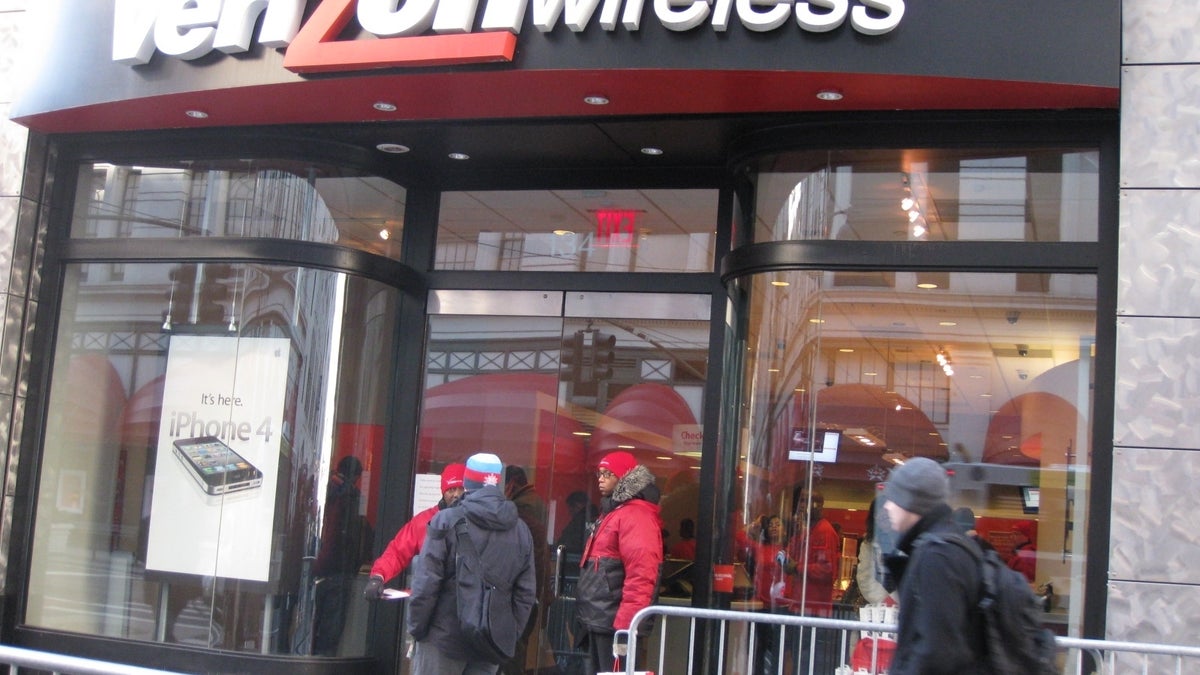Verizon plans spectrum sale to win approval for cable deal
Verizon Wireless says it will sell some of its 700MHz wireless spectrum if regulators approve its $3.6 billion bid to buy AWS spectrum from cable operators.

Verizon Wireless is planning to auction off some of its wireless spectrum in the hopes of winning favor with regulators to buy a chunk of spectrum from cable operators.
Verizon has been facing opposition from several smaller wireless carriers for a deal it proposed last year to buy unused spectrum from a group of cable operators called Spectrum Co. that includes Comcast and Time Warner Cable.
Verizon said in a statement today that if it's given approval to buy the cable operators' spectrum it will sell some of its own spectrum in the A and B block of the 700MHz frequency band, which it bought in an government auction in 2008. The Federal Communications Commission and the Department of Justice are currently evaluating the sale of the cable spectrum to Verizon.
Sprint Nextel, T-Mobile USA, and MetroPCS are among the smaller carriers that have complained to the FCC about Verizon's deal with Spectrum Co., the consortium of cable companies that originally bought the AWS spectrum Verizon is proposing to buy. These companies argue that Verizon already owns large swaths of wireless spectrum and therefore acquiring more from the cable operators would shut smaller players out of acquiring much needed wireless spectrum.
Verizon's plan to sell some of its existing spectrum holdings is likely an attempt to appease these concerns from smaller rivals. Wireless spectrum is seen as the lifeblood of the wireless industry. And at present, the industry agrees there isn't enough of it to go around.
The FCC has proposed auctions of new spectrum from unused broadcast TV. But these auctions take years to develop, and more spectrum will be needed much sooner, if carriers hope to keep up with growing demand.
AT&T said that its merger with T-Mobile USA was an attempt to grow its spectrum position. But the FCC and Justice Department rejected its $39 billion bid last year, stating that the merger would have harmed competition.
"Since wireless operators, large and small, have expressed concern about the availability of high-quality spectrum, we believe our 700MHz licenses will be attractive to a wide range of buyers," Molly Feldman, vice president of Business Development for Verizon Wireless, said in a statement. "Moreover, provided our acquisition of AWS spectrum is approved, our open sale process will ensure these A and B spectrum licenses are quickly and fairly made available for the benefit of other carriers and their customers."
If the deal with the cable companies is approved, Verizon would then have about 20MHz of nationwide spectrum in the AWS band that it could combine with 22MHz of contiguous spectrum across the U.S. in the C block of spectrum at the 700MHz frequency. This spectrum is what the company would use for its nationwide 4G LTE network.
The companies opposing the sale of Spectrum Co.'s assets to Verizon would likely benefit the most from Verizon's sale of spectrum, according to equities analysts at Credit Suisse.
In a research note distributed to investors, the firm singled out MetroPCS, T-Mobile, and Leap Wireless as the biggest winners if Verizon's spectrum were to go auction. Sprint may also benefit, but because of the expense of its Network Vision upgrade plan and the cost of offering the iPhone, it may not have the cash to win the new spectrum in an auction.
The availability of more spectrum in the market may also cool other deals that wireless operators may be working on, the Credit Suisse research note indicates. For example, there have been rumors of a possible network-sharing deal between Sprint and T-Mobile. And AT&T has been eying satellite spectrum from Dish Network. And if carriers are considering buying their own spectrum, it may hurt Clearwire's chances of signing up more wholesale partners for its 4G LTE network.
Even though Verizon is touting its plan as win-win for the industry, consumer advocates and opponents of the deal are skeptical. Harold Feld, legal director at Public Knowledge, said that history has proven that in these types of spectrum sales where one carrier sells off some spectrum assets to another, those assets usually end up in the hands of another large competitor and not with smaller providers.
"Recent history of such spectrum sell-offs shows that when Verizon and AT&T sell off spectrum, it's Verizon who buys AT&T's, and vice versa," he said. "Having AT&T buy Verizon spectrum in this instance would do nothing to help consumers."
Not only is Feld worried that too much wireless spectrum will be concentrated in the hands of the largest wireless player on the market, but he said he is also concerned about the side marketing deal that Verizon has struck with the cable operators that will allow the companies to resell each other's services. Consumer advocates believe that Verizon is giving up its fight to offer a competitive land-based broadband service, in exchange for getting more wireless spectrum.
"There is less than meets the eye to Verizon's spectrum sale," he said. "At the end of the day, Verizon and the cable companies will still have created a cartel in which Verizon will rule the air for wireless broadband and cable will offer the only widespread true high-speed landline Internet services."

